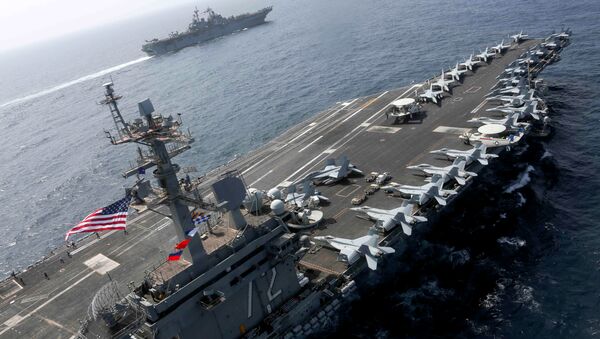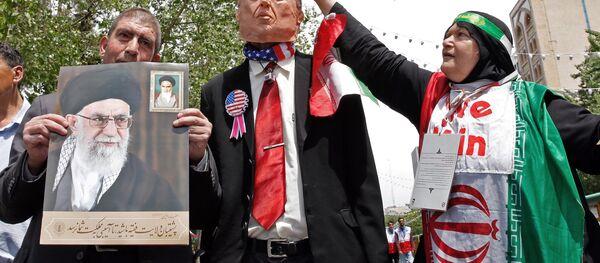Several unnamed US officials have told CNN that the Pentagon decided to deploy an aircraft carrier strike group to the Middle East last month after it allegedly turned out that Iranian officials were not taking the US warning seriously.
"It seems tensions have dropped some, but we are still watching very closely, we haven't relaxed, we remain vigilant", one defence official was quoted as saying.
The insiders claimed that even though initial warning messages were sent to Iran through an unknown third party on 3 May, the Pentagon had some intelligence that Tehran was unfazed. Several days later the US publicly announced that it was dispatching military forces to the Gulf.
READ MORE: Trump Calls Iran "Terrorist Nation Number One", Doesn't Rule Out Military Option
CNN additionally cited Gen. Joseph Dunford, chairman of the Joint Chiefs, as telling an audience at the Brookings Institution that after a purported threat of an attack emerged on 3 May, "we also saw in the intelligence that perhaps there was a question about the will and capability of the United States to respond".
"In the last weekend of April, I began to see more clearly things that I had been picking up on over a period of months", Dunford reportedly said, adding that he remembers on 3 May, "multiple threat streams that were all perhaps coming together in time".
In addition, in late May, US President Donald Trump confirmed that the Pentagon would dispatch 1,500 more troops to the region.
In an interview with the British news network ITV earlier this week, Trump said that he didn't rule out a military option against Iran:
"Do I want to? No. I'd rather not. But there's always a chance. […] The only thing is we can't let them have nuclear weapons", he noted, reiterating that he, however, wanted to talk to Iran's President Hassan Rouhani.
Rouhani previously signalled his readiness to start a dialogue with the US, provided that Washington shows respect and follows international rules.
The Trump White House has piled pressure on Iran since pulling out of the 2015 Joint Comprehensive Plan of Action (JCPOA), also known as the Iran nuclear deal, last May, and reinstating all sanctions against Tehran.
READ MORE: Iran Can Sink US Warships With 'Secret Weapon' — Military Official
The Islamic Republic, in turn, announced last month that it would partially suspend some of its commitments under the agreement, having set a 60-day deadline for the five remaining signatories — Russia, France, the UK, Germany, and China — to ensure that Iranian interests are guaranteed or else the country would resume enriching uranium at higher levels.



